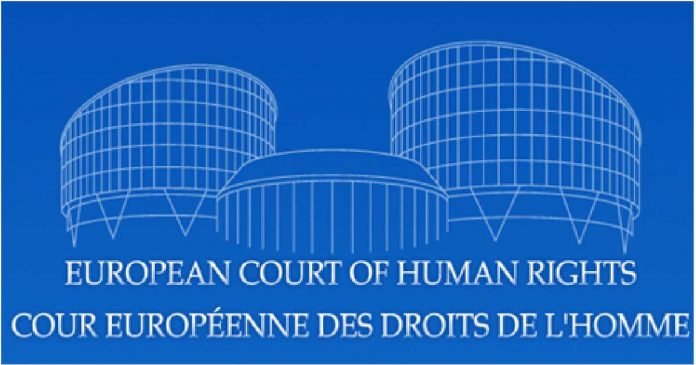What’s the difference between the European Union and the European Convention on Human Rights? Here’s a handy survival guide.
Britain voted to leave the European Union (EU). We did not vote to leave the European Convention on Human Rights (ECHR). They are completely different body’s and organisations.
The European Convention on Human Rights is a Human rights organisation and has 47 member countries all signatories of the Human rights act. 47 European states which have entered into a legal undertaking to comply with the Convention and have agreed to supervision of their compliance by the European Court of Human Rights.
The European Union is a unified trade and monetary body of 27 member countries. The EU itself is not a member of ECHR and has not reached the required stranded to become a member.
People can often get confused, the name being a confusing issue in itself i.e. the ‘EUROPEAN UNION’ for all intents and purposes one would think this constituted the entire European continent. However, the European Continent consists of 47 countries, not just the 28 soon to be 27 countries of the unified trade and monetary body know as the EU.
The EU as not signed the Human rights act.
The fact is the EU is not even a member of the ECHR they are in the process of application or assertion. The accession of the European Union to the Convention became a legal obligation under the Treaty of Lisbon, which entered into force on 1 December 2009.
The legal basis for the accession of the EU is provided for by Article 59, paragraph 2 (“the European Union may accede to this Convention”), as amended by Protocol No. 14 to the Convention which entered into force on 1 June 2010.
The Committee of Ministers of the Council of Europe gave an ad-hoc mandate to its Steering Committee for Human Rights (CDDH) to elaborate, in co-operation with the European Commission, the necessary legal instrument for the accession.
The accession of the European Union to the Convention denotes the process whereby the European Union will join the community of 47 European states which have entered into a legal undertaking to comply with the Convention and have agreed to supervision of their compliance by the European Court of Human Rights.
The European Union will thus become the 48th Contracting Party to the Convention. Required under the Treaty of Lisbon, EU accession will make it possible, at last, for individuals and undertakings to apply to the European Court of Human Rights for review of the acts of EU institutions.
In the meantime, the EU seem to have immunity on Human rights violations relating to asylum seekers crossing the Mediterranean.
According to a 2012 ruling by the European Court of Human Rights, migrants rescued by European civilian or military vessels must be taken to a safe port. Because of the chaotic political situation in Libya and well-documented human rights abuses in detention camps there, that means a European port, often in Italy or Malta.
When the Libyan Coast Guard intercepts migrants, even outside Libyan territorial waters, as it did on Nov. 6, the Libyans take them back to detention camps in Libya, which is not subject to European Court of Human Rights jurisdiction.
For Italy — and Europe — this is an ideal situation. Europe is able to stop people from reaching its shores while washing its hands of any responsibility for their safety.
The European Parliament failed to commit to protecting human life in the Mediterranean earlier this year The European Parliament voted against a resolution supporting more search and rescue operations in the Mediterranean.
The resolution called on member states to step up efforts to rescue people drowning in the sea, with more than 1,000 lives having already been claimed this year.
EU search and rescue operations have been downgraded and de-funded in recent years as European government policies towards refugees have hardened. Some governments, like Italy’s, have even waged a campaign to try to stop NGOs rescuing drowning migrants with their own resources.
Around 18,000 people have died in the Mediterranean since 2014, according to figures released by the UN’s International Organisation for Migration at the start of the month – most of them people trying to make the crossing to Europe.
The majority vote to defeat the motion came from the parliament’s largest political group, the centre-right European People’s Party. A coalition of conservatives across EU countries. The EPP is the home of mainstream pro-EU conservative politicians such as Angela Merkel, Jean-Claude Juncker, and incoming European Commission president Ursula von der Leyen.
The EU and its member states intensified efforts to prevent arrivals and outsource responsibility for migration control to countries outside the EU’s borders. In Libya, in particular, the EU pursued a strategy of containment in cooperation with Libyan authorities, despite overwhelming evidence of pervasive and routine brutality against asylum seekers and other migrants arbitrarily detained by those authorities, or otherwise deprived of their liberty. Libya has not signed the Refugee Convention and does not have a functioning asylum system.
NATIONAL GOVERNMENT BAD
EU GOOD !
Earlier this year, a team of international lawyers submitted a complaint to the International Criminal Court accusing the EU of crimes against humanity which allegedly resulted from its migration policy in the Mediterranean. In a 245-page document, the lawyers claim that the EU is responsible for thousands of deaths of migrants who drowned in the Mediterranean while fleeing Libya, as a direct consequence of the externalisation of its migration policies.
But the EU is not a signatory of the Human rights act and EU member states like Italy are acting as third countries carrying out there own immigration policy. A degree of separation the old national government bad EU good agenda. A basic get out for the EU.
So where do the UK stand on Human rights and whats the difference between the EU and the ECHR
Confused? So are a lot of the media, apparently – the EU and the ECHR are often discussed in close proximity and are frequently muddled up. So here’s a handy reminder of their origins and some important differences between the two legal systems.
First, the EU…
The EU is a political-economic union founded upon various international agreements (treaties) which aim (amongst other things) to facilitate trade between member states.
After World War II, European integration was seen to be an antidote to the extreme nationalism which had devastated the continent, and trade was an important means of establishing that integration. Initially six countries pooled their coal and steel resources, but since then the EU has grown into a union of 28 member states, setting up a common market and allowing goods, services and people freedom of movement (subject to certain restrictions) between states.
The EU has its own parliament, drawn from representatives from each member state. The European Parliament debates and produces laws on a wide variety of matters such as the environment, employment and discrimination. The EU also has its own court: the Court of Justice of the European Union, which sits in Luxembourg. This court oversees the uniform application and interpretation of European laws, in cooperation with national courts.
When the UK joined the EU in 1973, an Act of the UK Parliament (the European Communities Act) was brought in to provide a mechanism for adopting EU laws at a national level and taking account of decisions of the EU’s court.
What about the ECHR?

After World War II, twelve countries joined together to form the Council of Europe. The Council of Europe is an international organisation which aims to promote democracy, the rule of law, human rights.
The Council of Europe is totally distinct from the EU, and is not to be confused with the European Council (an EU institution that that comprises the heads of state or government of the member states) or the Council of the European Union (sometimes called the Council of Ministers, this is another EU institution which, along with the European Parliament, makes European Union laws).
The Council of Europe cannot make binding laws, but it does have the power to enforce certain international agreements. The best known enforcement body of the Council of Europe is the European Court of Human Rights, which enforces the European Convention on Human Rights.
The European Convention on Human Rights (ECHR) is an international treaty which protects human rights and fundamental freedoms. It was drafted in 1950 by the Council of Europe. A British Conservative Member of Parliament and lawyer, Sir David Maxwell-Fyfe, was a leading member of the Committee which drafted the ECHR. As a prosecutor at the Nuremberg Trials, he had seen first-hand how international justice could effectively be achieved.

The drafters of the ECHR aimed to set a human rights agenda which would avoid any repetition of the most serious human rights violations that had occurred during the Second World War. The ECHR has played an important role in the development and awareness of human rights across Europe.
The European Court of Human Rights sits in Strasbourg. Now, thanks to the Human Rights Act, people can bring a Convention rights claim in the domestic courts.
Do EU law and the ECHR interact?
Yes, in some ways. Although the EU is independent from the Council of Europe, each share ideals about human rights, democracy and the rule of law uniting Europe.
Signing up to the ECHR is a (political) condition for EU membership (for new members at least). The EU also has its own Charter of Fundamental Rights, which has the same status as the union’s founding treaties. In 2007, an international agreement (known as the Lisbon Treaty) obliged the EU to ‘accede to’ the ECHR.
Learn what effect Brexit could have on fundamental rights here.
Read our explainer on the EU Charter of Fundamental Rights. Read more on the European Convention on Human Rights. Take a look at our resources on the Human Rights Act and the Government’s proposal to replace it will a Bill of Rights.
NO, LEAVING THE EU DOES NOT AFFECT OUR HUMAN RIGHTS BUT IT WILL ALWAYS BE SOMETHING WE MUST SAFEGUARD FROM THE TORIES AND OTHERS THAT WOULD LIKE TO SEE THEM REMOVED.
Human rights and the EU
What would be the effect on human rights if the UK leaves the EU?
Some things won’t change—and some things will.
We would still be signed up to the European Convention on Human Rights
The United Kingdom has signed the European Convention on Human Rights, which is an international treaty enforced by the Council of Europe—a group of 47 countries from Iceland to Russia.
As a result, people who believe that the UK government or the UK’s laws are responsible for a breach of any of the rights listed in the convention can challenge them at the European Court of Human Rights in Strasbourg.
By signing the treaty, the government agreed to abide by any judgment delivered by the Strasbourg court that goes against the UK. To comply, the government might have to ask parliament to change the law.
It’s the job of the Council of Europe to supervise the way in which governments give effect to the court’s rulings.
The Council of Europe is entirely separate from the European Union, which has 28 members.
It follows that a country can be a member of the Council of Europe and not of the EU. And while ministers say that they “rule nothing out”, it is not the policy of the UK government to leave the Council of Europe or pull out of the human rights convention.
So if the UK leaves the EU it will still be possible for people to complain to the human rights court and it will still be the responsibility of the UK to abide by the court’s judgements.
The Human Rights Act is also separate from the EU
From 1966 to 2000, the only way in which an individual could enforce the European Convention on Human Rights against the government was to complain to the court in Strasbourg.
But when the Human Rights Act was brought into force, courts in the United Kingdom were required to give effect to other laws in a way that was compatible with human rights.
The act also required courts in the UK to take into account decisions by the human rights court in Strasbourg.
That won’t change if the UK leaves the EU. There will be no obligation on parliament to change the Human Rights Act—although that’s something that the government is separately committed to.
Related article:
OXFAM SLAMS SHAMEFUL EUROPEAN PARLIAMENT VOTE AGAINST SEARCH AND RESCUE
Support Independent Journalism Today
Our unwavering dedication is to provide you with unbiased news, diverse perspectives, and insightful opinions. We're on a mission to ensure that those in positions of power are held accountable for their actions, but we can't do it alone. Labour Heartlands is primarily funded by me, Paul Knaggs, and by the generous contributions of readers like you. Your donations keep us going and help us uphold the principles of independent journalism. Join us in our quest for truth, transparency, and accountability – donate today and be a part of our mission!
Like everyone else, we're facing challenges, and we need your help to stay online and continue providing crucial journalism. Every contribution, no matter how small, goes a long way in helping us thrive. By becoming one of our donors, you become a vital part of our mission to uncover the truth and uphold the values of democracy.
While we maintain our independence from political affiliations, we stand united against corruption, injustice, and the erosion of free speech, truth, and democracy. We believe in the power of accurate information in a democracy, and we consider facts non-negotiable.
Your support, no matter the amount, can make a significant impact. Together, we can make a difference and continue our journey toward a more informed and just society.
Thank you for supporting Labour Heartlands













